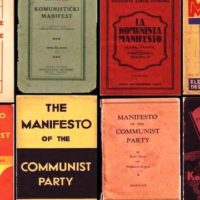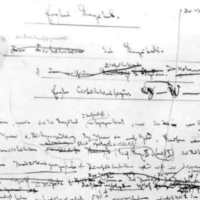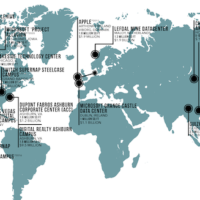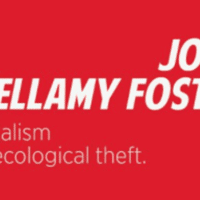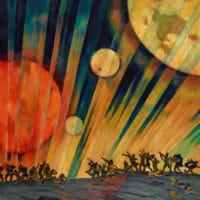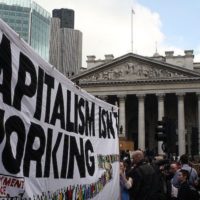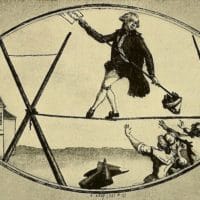-
Climate change and the class divide
No, we’re not all in it together. Our rulers are responsible for the system that’s creating an ecological catastrophe. As that crisis intensifies, it’s exposing and intensifying the divide between us and them.
-
Supreme Court ruling hands U.S. Border Patrol a license to kill with impunity
The Supreme Court set a dangerous precedent yesterday when it ruled in favor of the U.S. Border Patrol in the cross-border murder of a young teenage boy who was shot in the face by an overzealous agent.
-
A World no longer shaped by Atlantic powers
The annual Munich Security Conference that took place February 14-16 this year turned out to be an iconic event, drawing comparison with the one held in the same Bavarian city on February 10, 2007, where in a prophetic speech Russian President Vladimir Putin had criticized the world order characterized by the United States’ global hegemony and its “almost uncontained hyper use of force—military force—in international relations.”
-
Show me the words that will reorder the World, or else keep silent
On the night before Red Books Day, on 21 February 2020, in the Indian state of Tamil Nadu, N. Sankaraiah–one of the thirty-two founders of the Communist Party of India (Marxist)–read from M. Sivalingam’s new translation into Tamil of the Communist Manifesto. Comrade Sankaraiah, age 98, said that he had first read the Manifesto at age 18. Over the years, he returns to the book because each time he reads it the brazing prose teaches him something new. And something that–sadly–seems ageless.
-
The problem with private property
The conceptualisation of property in a economic sense harks back to John Locke. These days property is commonly separated into four categories.
-
Chile’s U.S.-backed gov’t is shooting anti-austerity protesters, blinding and maiming by the thousands
Chile has responded to anti-neoliberal protests with brutally violent repression. 10,365 people have been detained; 3765 treated for wounds in hospitals; and 2122 shot, 445 in the eye according to a conservative estimate by the state-backed National Institute of Human Rights.
-
What does it mean to be a Marxist?
What’s in a name? Being a Marxist means being a revolutionary anticapitalist, a fighter against all forms of oppression, an internationalist who wants to end capitalism around the whole world, and a believer in the power of the working class.
-
The “spectre of communism” haunts the world: 172 years of the Communist Manifesto
Tens of thousands of people in Asia, Africa, Latin America and North America publicly read the Communist Manifesto to commemorate the 172nd year since its first publication in 1848.
-
For the climate: protecting the Commons and fixing Democracy
Climate change, unchecked, promises planetary disaster. All forms of life are threatened. Scientific evidence strongly suggests capitalistforms of production and consumption gave rise to climate change in the first place and have allowed the process to advance.
-
Why didn’t Marx finish Capital?
The question why Marx’s Capital remained unfinished has occupied many for more than a century.
-
New starting point(s): Marx, technological revolutions and changes in the centre-periphery divide
This paper presents the last book that Marx excerpted in his life: La Physique Moderne, written by Hospitalier and published in 1882. This last Notebook (B156, in the IISG’s archives) contains hints of other issues that he was researching in his last years, especially societies at the periphery.
-
1131: Capitalism and ecological theft
Sociologist John Bellamy Foster on the modern divide between humanity and nature and his book “The Robbery of Nature: Capitalism and the Ecological Rift” from Monthly Review.
-
You write injustice on the Earth; we will write revolution in the skies
‘Scientists are wrong’, the Uruguayan writer Eduardo Galeano said with a warm smile on his face. ‘Human beings are not made of atoms; they are made of stories’. It is why we want to sing and draw, tell each other about our lives and our hopes, talk about the wonders in our lives and the wonders that we dream about. These dreams–this art–are what make us get up each day, smile, and go forward into the world.
-
EXCHANGE: Left Media and Venezuela
The sociologist never levels the “authoritarian” charge against his own government, despite the United States’ murderous lawlessness at home and abroad—mass deportations, illegal wars, serial police killings, etc.—all in the absence of any credible external threat.
-
Standing up for Left literature—In India, it can cost you your life
On February 16, 2015, Govind and Uma Pansare went for a morning walk near their home in Pune (Maharashtra, India). Two men on a motorcycle stopped near them and asked for directions, but the Pansares could not help them; one of the men laughed, removed a gun, and shot the two. Uma survived the attack but Govind died in a hospital on February 20, 2015.
-
Why does Little Women still matter? Review of Little Women (2019) – Directed by Greta Gerwig
Greta Gerwig’s new adaptation of Little Women has struck a resounding chord with audiences, particularly young women. Why does this book continue to resonate with us one hundred and fifty years later, and what did this latest version bring us?
-
If Bloomberg wants to buy an election, he should run as a Republican against Trump—not sabotage Democrats
The mega-billionaire should be running against Trump in the Republican primaries, not as a Democrat. If he actually cared about this country more than stroking his massive ego that is exactly what he would be doing.
-
High stakes tests aren’t better—and they never will be
Accountability is important. But tests that tie school funding to student performance only make things worse.
-
Capitalism, socialism and over-production crises
Unlike capitalism, socialism avoids any waste or slack, such as is caused by an over-production crisis, by raising the consumption of workers appropriately to avert it.
-
Isabelle Garo on Marx’s strategic thought and the spirit of revolt
The present context in France and across the world is quite bad for the exploited and oppressed in general, as also for the organised workers’ movement. This long term weakening in the conditions of capitalist crises gave the green light to the ruling classes to take out their revenge at the end of the 1970s and wind back the limited but real social gains of the post-war period.







